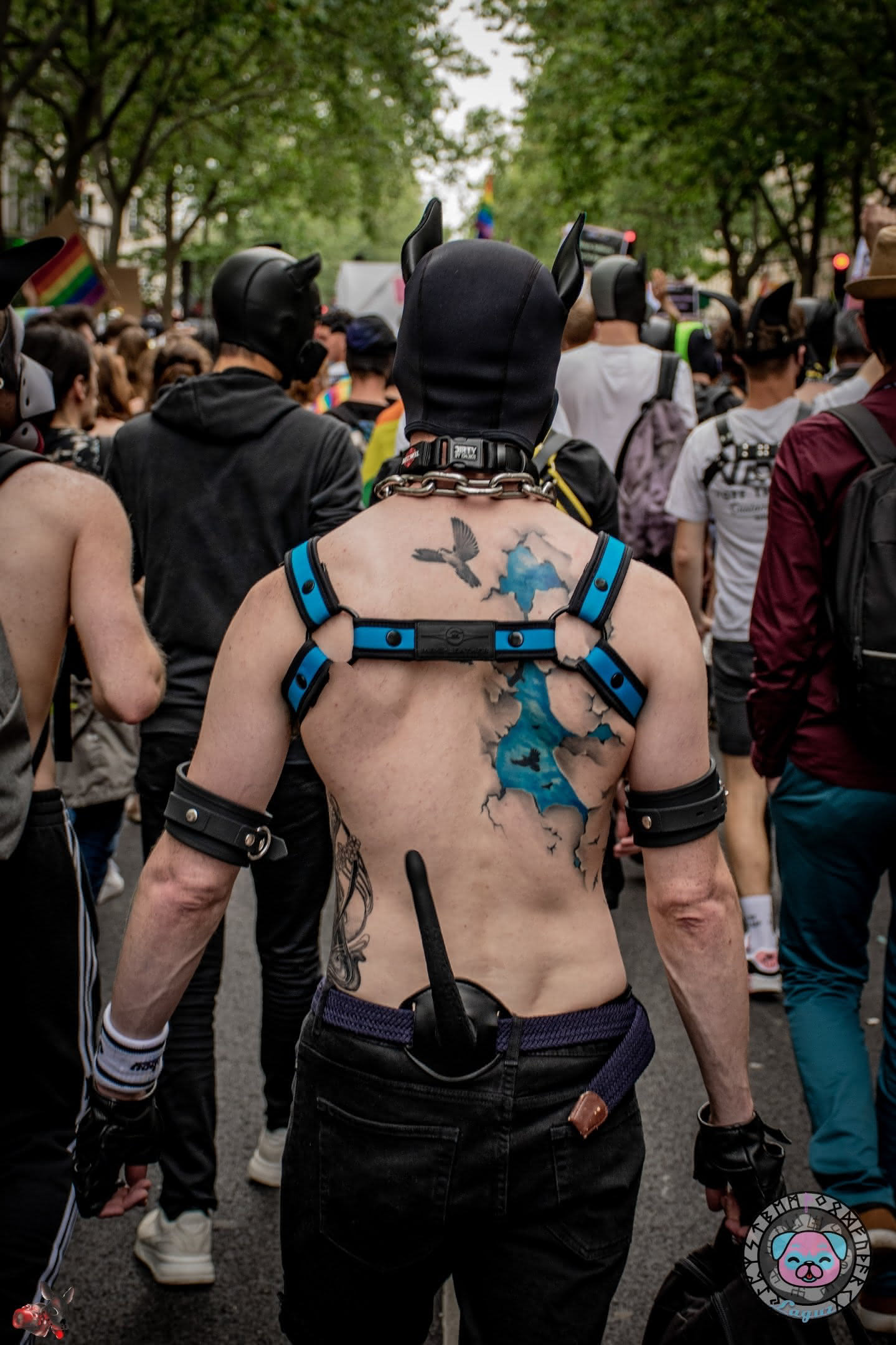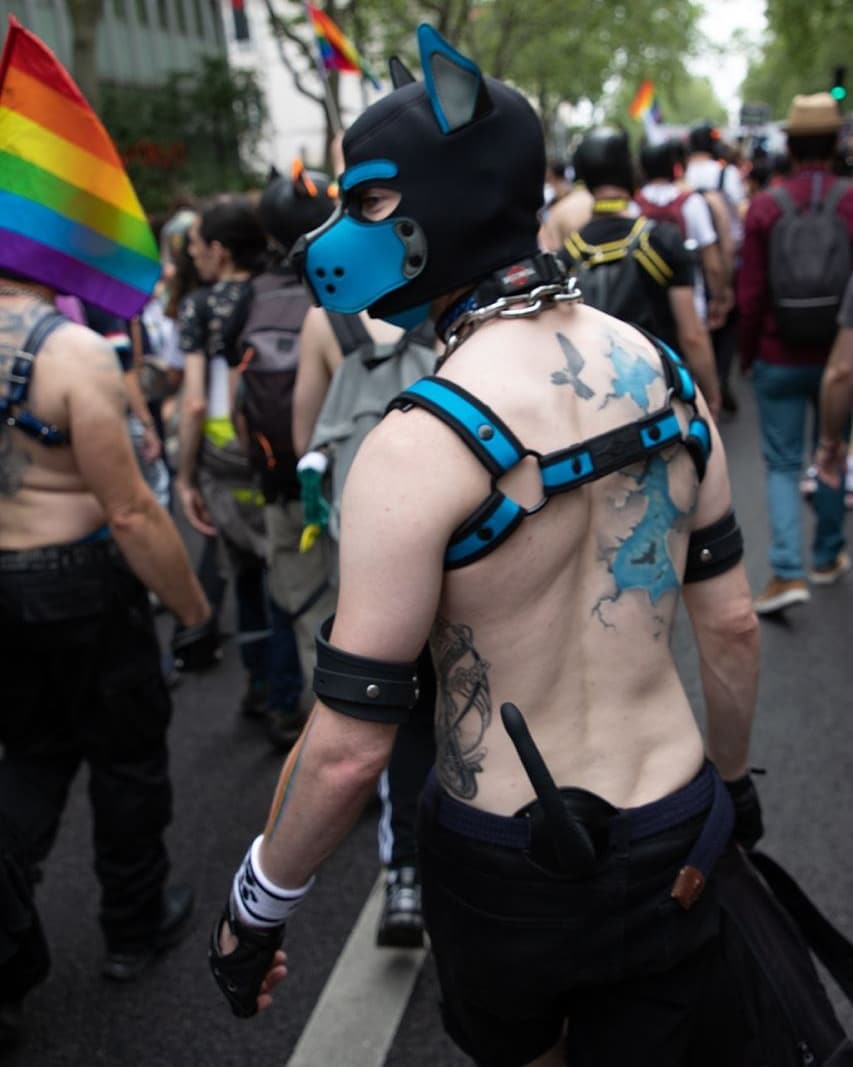Switched Brand Ambassador Pup Bailey breaks down why you should proudly embrace your kinky lifestyle.

“These freaks give us a bad name”, “why can't you just be normal?”, “why are you not like the other boys”. Shame is everywhere and it starts early on; often it sticks and is carried with us well into adult life; our kink lives are not immune. Even though the idea and feelings of shame seemingly surround us, understanding the roots of shame is an important and overlooked topic.
Generally, shame falls into two categories: external and internal. The former being what we are told by others, the judgment, opinions, and enforced ideas of morality that affect our internal sense of self, and by extension, the denial of pride. The latter being, what we tell ourselves about who we are and how we fit into society's concepts and narratives of worth and morality.
Whether it is LGBT-phobia and stigma from the mainstream, eternal debates and judgments coming from within our own community or even the reclaiming of shame through kinks of humiliation and degradation, our relationship with shame is a unique, complex and nuanced one.
Rationalising and tackling external kinkshaming
Undoubtedly, some of the kink-shaming we experience comes from a place of concern or misconception. It could be a family member, worrying about how you would be seen and treated by others, a partner evaluating the extremity, safety or risk of a sexual or fetish practice, or a friend jumping to (often incorrect) conclusions on our virtue and intentions towards others. Some of the toxic opinions we face have more deep-rooted origins. Macro structures such as religion and culture can play their part, but all too often the role of our own rainbow community is downplayed and negated. The debate every year about kink at pride is a perfect example.
One way we can deflect unwanted judgements that affect us is developing an ‘internal mantra’.
Discourse often centres around the argument that kink doesn't belong at pride and kinksters shouldn't show their lifestyles because it embarrasses us and gives us a bad name. The ‘us’ here is those belonging to a mainstream, homo-normalised culture. In other words, the “good gays” are those who uphold and assimilate into the dominant culture's social expectations and norms. The “bad gays” can be kinky in private, as long as they don't try to gag us with it in public.
These “good gays” claim that the embracing of femininity, kink, or anything subversive engages in a clichéd trope that endangers or tarnishes the community as a whole, and thus should be rejected outright. It is argued that if we push too hard for progress, representation and visibility, our gained acceptance and tolerance could be rolled back, and society will again turn on us and attack. But considering the rise in hate crime, increased LGBT-phobic legislation and discourse, alongside the media's usual kink-hysertia, it would be laughable and insulting to argue and suggest that society had ever once really ceased its attack on us or our identities. These labels of “good” or “bad” gays may be indeed vague and subjective. And yet such notions go some way considering and comparing how our gayness, queerness or kinkiness has been received, regarded, reacted to, and in some cases, seemly rejected by a mainstream hetero-normative society.
Other attacks on us from more conservative strands of society, may be reflective of other's own struggle to find their own authentic identity, the envy and jealousy of kink's unashamed pursuit of pleasure and sexual fulfilment or just plain old fear of the unknown, alternative or extreme. Or maybe it's just the fear of that rough and tough looking Dom dangling a collar with a glint in his eye!
Whatever it may be, treat these people shaming us, not with anger or vitriol but with compassion and above all, an openness that they have never afforded towards us. Take that high road. After all, the saying goes “wish for others as you wish for yourself”.
De-internalising shame and finding kink positivity
Now looking at ourselves, there are actions that we can all take to disregard, diminish and deconstruct kink-shaming in our own minds and social circles.

Changing the narrative - find a mantra that works for you
One way we can deflect unwanted judgements that affect us is developing an ‘internal mantra’. A mantra is a verbal manifest of a personal truth or a basic belief. A kink positive mantra could be along the lines of “there is nothing inherently wrong with me or bad about me, despite what our society and others say” or “I do not and should not have to justify the way I choose to lead my life”. Obviously providing that the way you live is within the law and you are not hurting others implicitly (unless you have consent to inflict harm that is!). In short, be kind to yourself and remind yourself of your validity as a human as often as needed.
Become a kink ally - proactively learn about other fetish journeys
Let's take one of the most stigmatised sub-communities in our fetish family, the AdultBaby/DiaperLovers (ADBL). Many people will say “I accept this or that but I don't understand the diapers thing”. It is totally fine and fair to not share a fetish or even to go as far as to recognize its potential tabooness. However a central question to pose oneself when arbitrarily dividing fetishes is: “Have I actively shown an interest and taken the time in speaking to those who engage in such a lifestyle, in order to understand what positive aspects it brings them, and why they do it?” If not, maybe it's a good place to start.
It sounds simple, but a compliment can go a long way in allowing others to feel like actualised confident members of our fetish family.
Such conversations need not be overly invasive either; some motivations are private and highly personal. In any case, even if it isn't for you, the showing of interest and validation of their experience or identity goes a long way in fostering connection and shared understanding. Ultimately the knowledge of others’ experiences and motivation will aid you in acting as an effective advocate and informed ally in the fight against kink-shaming; from correcting misleading or incorrect information to helping others find their tribe safely and happily.
Choose to kink-celebrate - build each other up
It sounds simple, but a compliment can go a long way in allowing others to feel like actualised confident members of our fetish family. Share their photo on social media (if it's a private account, it's better to ask beforehand) and/or leave a nice comment. Engagement does mean something and can be an agent of empowerment.
Be open to real kink-positivity - you betta werq (on yourself)
If our aim, individually or collectively, is to become more resilient to shame, healthier in our minds and happy in our hearts, the first thing we can work on is ourselves. Check our own judgements at the door. Dig deeper and find out where they come from and how to deconstruct our bias, trauma and ego.
This is no easy task for sure, but harnessing the consciousness of our actions, thoughts and words is a tangible step to bring about spiritual and sexual emancipation for us all. No matter what makes your tail wag, your heartbeat increase, or your eyes sparkle, we all deserve freedom from shame, freedom from judgement but most of all, we deserve self-love, self-acceptance and self-confidence.
Every. single. damn. one of us.
Disclaimer: All views and opinions expressed are the author's own, and do not reflect the views and opinions of Switched™. The author's views and opinions are based upon information they consider reliable, but neither Switched™ nor its affiliates warrant its completeness or accuracy, and it should not be relied upon as such. Also, the opinions expressed by the author may be short term in nature and are subject to change without notice.





 2026
2026